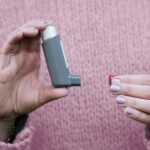Asthma is a chronic respiratory condition that affects millions worldwide, causing symptoms such as wheezing, coughing, and difficulty breathing. While most people focus on managing lung health, fewer are aware of the impact asthma can have on oral health. Medications, mouth breathing, and overall respiratory distress can contribute to a range of dental problems. Understanding this link is crucial for asthma patients to maintain good oral hygiene and prevent complications.
How Asthma Affects Oral Health
1. Dry Mouth (Xerostomia)
Many asthma patients frequently use inhalers, particularly corticosteroids and bronchodilators, which can reduce saliva production. Additionally, asthma often leads to mouth breathing, especially during sleep, further drying out the mouth. Saliva is essential for washing away bacteria, neutralizing acids, and keeping the mouth moist. A dry mouth increases the risk of:
- Cavities
- Gum disease
- Bad breath (halitosis)
- Oral infections, including fungal infections like oral thrush
2. Increased Risk of Cavities
Due to reduced saliva production, food particles and bacteria linger in the mouth longer, increasing the risk of tooth decay. Inhalers, especially those containing steroids, can also alter the oral microbiome, making the environment more favorable for cavity-causing bacteria.
3. Oral Thrush (Candidiasis)
Corticosteroid inhalers can disrupt the balance of bacteria and fungi in the mouth, leading to an overgrowth of Candida, a type of yeast. This results in white, creamy patches on the tongue, inner cheeks, or throat, often accompanied by discomfort or a burning sensation.
4. Gum Disease (Gingivitis and Periodontitis)
Chronic dry mouth and an altered oral microbiome can contribute to gum inflammation. Early-stage gum disease (gingivitis) causes redness, swelling, and bleeding gums. If left untreated, it can progress to periodontitis, which can lead to gum recession, tooth loss, and even systemic health issues.
5. Enamel Erosion and Sensitivity
Acid reflux (GERD) is common among asthma patients due to frequent coughing and the use of certain medications. Stomach acids can reach the mouth and erode tooth enamel, leading to sensitivity and a higher risk of cavities.
My Personal Experience
Currently, I am on a regular dose of a rotahaler in the morning and nebulizing at night. As a result, my teeth become dirty over time. I visited my dentist, who suggested professional cleaning every six months due to my regular inhaler medication use. Following this advice has helped me maintain better oral hygiene despite my asthma treatment.
Tips for Maintaining Good Oral Health with Asthma
1. Rinse Your Mouth After Using an Inhaler
After each inhaler use, rinse your mouth with water or a fluoride mouthwash. This helps remove residual medication and reduces the risk of oral thrush and dryness.
2. Stay Hydrated
Drink plenty of water throughout the day to combat dry mouth. Chewing sugar-free gum or sucking on sugar-free lozenges can also help stimulate saliva production.
3. Maintain Proper Oral Hygiene
- Brush your teeth at least twice a day with a fluoride toothpaste.
- Use a soft-bristled toothbrush to prevent gum irritation.
- Floss daily to remove plaque and food particles between teeth.
- Consider using an alcohol-free mouthwash to prevent further drying of the mouth.
4. Use a Spacer with Your Inhaler
A spacer helps ensure that more of the medication reaches your lungs rather than getting deposited in your mouth, reducing the risk of oral side effects.
5. Schedule Regular Dental Checkups
Visit your dentist at least twice a year for cleanings and checkups. Inform them about your asthma condition and medications so they can tailor your treatment plan accordingly.
6. Manage GERD Symptoms
If you experience acid reflux, consult a doctor for management strategies. Avoid acidic foods and drinks, and do not brush immediately after an episode of acid reflux, as this can further damage the softened enamel.
7. Avoid Sugary and Acidic Foods
Limit your intake of sugary snacks, carbonated drinks, and citrus fruits, as they can contribute to cavities and enamel erosion.
8. Breathe Through Your Nose When Possible
Practice nasal breathing during the day and consider using a humidifier at night to keep your airways and mouth moist.
Conclusion
Asthma and oral health are closely linked, but with proper care, you can minimize the impact of asthma on your teeth and gums. By maintaining good oral hygiene, staying hydrated, using inhalers correctly, and visiting the dentist regularly, asthma patients can keep their smiles healthy and avoid complications. If you experience persistent dry mouth, gum issues, or other dental concerns, consult your dentist and asthma specialist for personalized advice.
Taking small steps today can lead to a healthier mouth and improved overall well-being. Stay proactive, and breathe easy!
Please share your experience in the asthma friend community.












